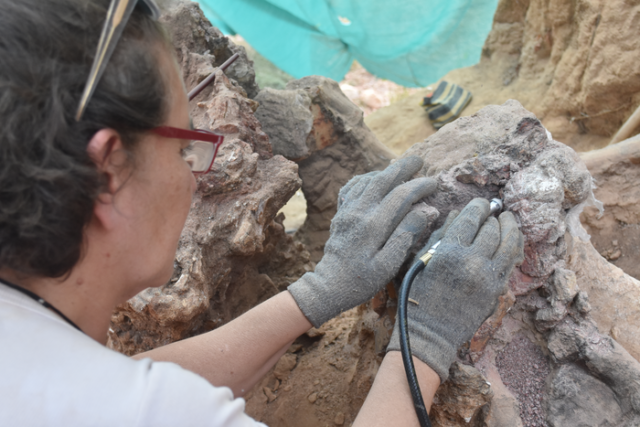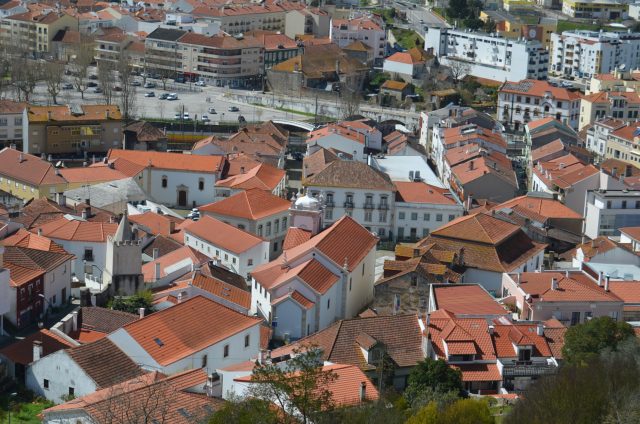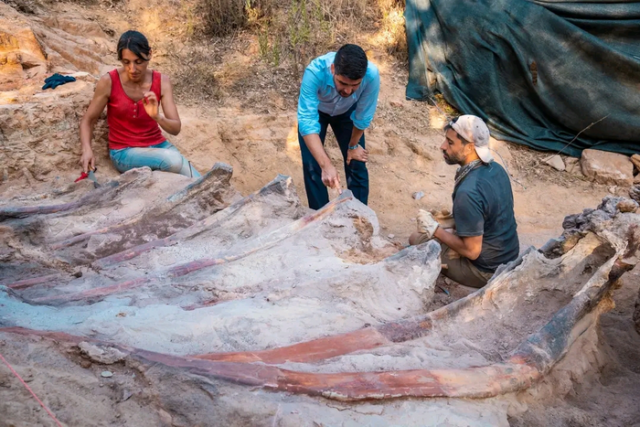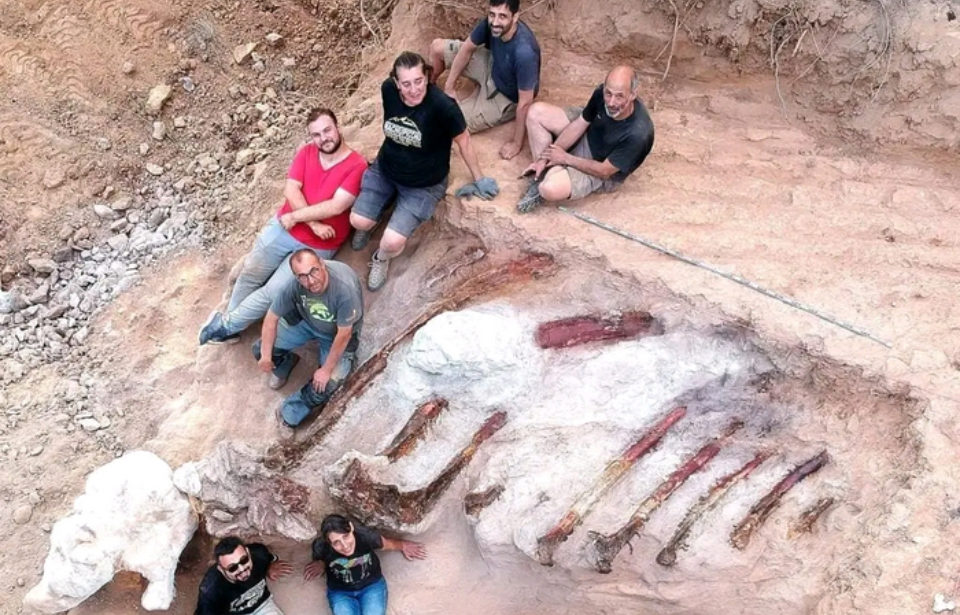The remains of what could be the largest dinosaur ever uncovered in Europe have been unearthed in a garden in the Portuguese city of Pombal. The discovery comes five years after paleontologists began excavating the site, after the man who owns the residence discovered fragments and fossilized bones while renovating the property.

The man contacted researchers upon uncovering the fragments, which led to the first of many excavations. The team of researchers consists of paleontologists from Portugal’s Instituto Dom Luiz at the University of Lisbon, as well as the Evolutionary Biology Group at UNED-Madrid and the Faculty of Fine Arts at the Complutense University of Madrid, in Spain.
The most recent excavation, which took place between August 1-10, 2022, unearthed what’s suspected to be the largest sauropod dinosaur ever found in Europe, if not the world. The species of herbivorous dinosaurs came into existence during the Jurassic period and were characterized by their long necks and tails, thick legs and small heads.

The fossils found correspond to a dinosaur that was around 12 meters tall and 25 meters in length. Thus far, vertebrae and three-meter-long ribs have been collected, pointing toward the possibility that the species of sauropod found was a brachiosaurid, which lived between 160-100 million years ago during the Upper Jurassic and Lower Cretaceous periods. The genus is characterized by its “markedly developed forelimbs.”
“It is not usual to find all the ribs of an animal like this, let alone in this position, maintaining their original anatomical position,” said Elisabete Malafaia, a postdoctoral researcher with the Faculty of Sciences at the University of Lisbon, in a press release. “This mode of preservation is relatively uncommon in the fossil record of dinosaurs, in particular sauropods, from the Portuguese Upper Jurassic.”
Pombal is home to a number of fossil sites, which, according to Malafaia, indicates the area has abundant fossil records of not only dinosaurs, but other vertebrates, as well. She told CBS News, “This fossil record has added important data to better understand the continental faunas that inhabited the Iberian Peninsula during the Late Jurassic.”

More from us: Derinkuyu: The Cavernous Underground City That Was Unearthed in a Turkish Basement
The level of preservation of the fossil indicates to researchers that other skeletal parts might be present, which they hope to unearth during later excavations.
